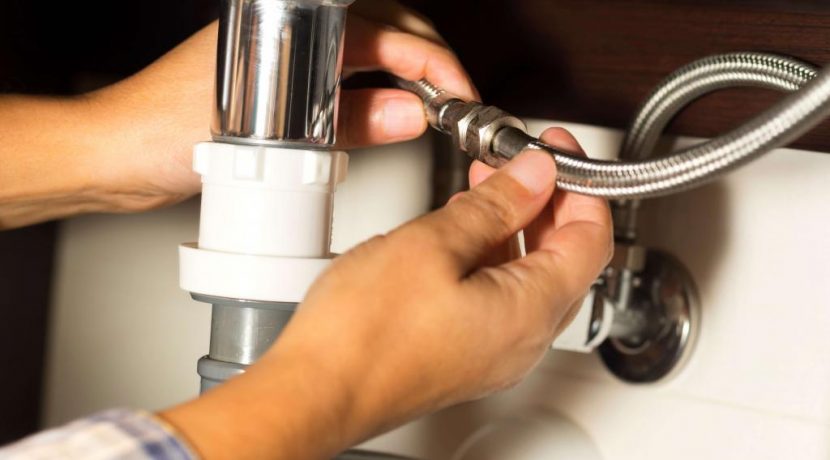Whether you are a frequent DIY-er or prefer the hands-off approach, at some point, every homeowner will need to hire a professional to handle or assist with repairs. For many of us, that time comes when a plumbing issue arises. The plumbing system in your home is complex. If it is not working properly, you risk being without clean water or creating water damage issues. Have a great plumber on call is essential. So let’s talk about where to find one, and what questions to ask when you do.
First Things First
What kind of plumber do you need? Not all plumbers are created equal—many specialize in a specific type of project. Some base their business on service calls (think snaking a drain or unclogging a toilet) while others prefer to install new plumbing as you would need in a remodeling job. In almost every state, plumbers require a specialty license and have different designations based on their amount of experience. Master plumbers and journeyman plumbers have the most experience. It is most common for master plumbers to own the business, while journeymen typically work in the business. Make sure to look for the right type of plumber for your project.
What Do Good Plumbers Have in Common?
While plumbers vary by specialty and experience, most good tradespeople do have a few things in common.
License and Insurance: Being properly licensed and insured protects both the homeowner and the plumbers business. A plumber who is serious about the longevity of their business will make sure to operate only while properly licensed and fully insured. Look for a minimum of $500,000 in liability insurance and an up-to-date workman’s comp policy. There are certain protections built into standard homeowner policies, but you don’t want to be in a situation where you are solely liable for job site incidents because your plumber doesn’t have the right insurance. Ask for insurance certificates, and call the agency to verify that the policies are enforced. Your state website will have information on whether your potential plumber is licensed.
Warranty: Good tradespeople take pride in their work and will stand behind it. Your plumber should be familiar with what the manufacturer warranty is on anything they install and should back it up with an additional workmanship warranty. The workmanship warranty will vary by project.
References: Ask your potential plumber for references from recent projects. Of course, they will be giving you the names of customers who adore them, but you should still call. Ask these questions: What kind of project did plumber X do for you? Did the company communicate as expected? Would you hire plumber X again? The answers to those questions will give you a great idea if you are working with a professional company who values your business.
Association or Community Involvement: This is often overlooked but vital. Small businesses need the support of their communities to survive for the long haul. Look for companies that are members of trade associations, such as the NAHB (National Association of Home Builders), NKBA (National Kitchen & Bath Association), or the ICC (International Code Council) or Community groups such as your local BBB or Chambers of Commerce, sponsoring school events, little league teams and community fundraisers is also a great sign. When a business invests in the community, they are more likely to have earned their reputation through hard work, rather than purchasing it through slick advertising.
Soft Skills: Were they polite on the phone and in-person? Did they respect your home, take off their shoes, park in the proper place? If they take the time to pay attention to the little details in your initial interactions, you can bet that will carry through the work you hire them to do.
Best Places to Look
Everything you could possibly need is just a quick internet search away, right? But the companies who show up on top aren’t always the best—they are just savvy digital marketers. A company can certainly be great a digital marketing and at plumbing.
The very best way to find a good plumber is to get a personal referral from family and friends that you trust. Almost as good is a neighborhood Facebook page or Nextdoor group. Online referral sources such as HomeAdvisor can also be valuable, just remember you will need to verify their vetting process and use a little more caution. Finally, print ads or TV ads can certainly make you aware of a company, but a big advertising budget isn’t always a sign of quality, and those ad dollars have to come from somewhere, so the pricing is most likely a bit higher than a contractor whose business comes only from word of mouth referrals.
The Right Plumber for the Job
You’ve combed through all of the sources, and are ready to call a few plumbers about your project. It’s on you to be prepared and to decide what is important to you! It is not necessary to call on nine to 10 companies—pick two to four that you feel meet your requirements, If you are disappointed after the first round of calls, then repeat with two to four more.
Ask every plumber the same set of questions and compare their answers before making a decision. You add your own, but here are a few to get you started:
- Do you specialize in service or install?
- Have you done this type of project before?
- Will you guarantee the work?
- Does this require a permit?
- What Associations or Community Groups do you participate in?
- How long will this project take (approximately)?
- Will I be notified if the project will take longer or cost more?
All rights reserved to the initial publisher for The Spruce.
Collected and published by Arms &McGregor International Realty editorial team.

